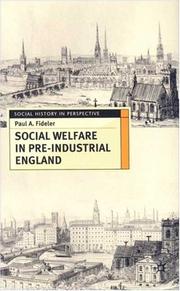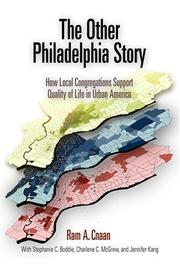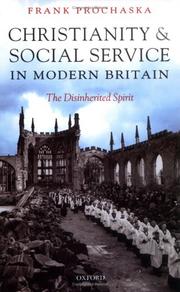| Listing 1 - 8 of 8 |
Sort by
|
Book
Year: 2006 Publisher: [Washington, D.C.] : U.S. Government Accountability Office,
Abstract | Keywords | Export | Availability | Bookmark
 Loading...
Loading...Choose an application
- Reference Manager
- EndNote
- RefWorks (Direct export to RefWorks)

ISBN: 0333688945 0333688953 9780333688946 9780333688953 Year: 2006 Publisher: Basingstoke, Hampshire ; New York : Palgrave Macmillan,
Abstract | Keywords | Export | Availability | Bookmark
 Loading...
Loading...Choose an application
- Reference Manager
- EndNote
- RefWorks (Direct export to RefWorks)
Paul A. Fideler crosses period boundaries to establish the five-centuries-long symbiosis between the pre-industrial market economy and parish-centered social welfare, institutionalized in the Elizabethan Poor Law. Utilizing recent work in economic, social, demographic, political, medical and welfare history and attending to developments in religion, ethics, and political thought, he highlights the unique assumptions, perceptions and repertoire of relief initiatives that sustained the Elizabethan social welfare tradition until its demise in the early decades of industrialization.
Church charities --- Poor laws --- Poor --- Public welfare --- History.

ISBN: 0812239490 9780812239492 Year: 2006 Publisher: Philadelphia (Pa.) University of Pennsylvania Press
Abstract | Keywords | Export | Availability | Bookmark
 Loading...
Loading...Choose an application
- Reference Manager
- EndNote
- RefWorks (Direct export to RefWorks)
Church charities --- Faith-based human services --- Quality of life
Book
ISBN: 1589013190 1435627369 Year: 2006 Publisher: Washington, D.C. : Georgetown University Press,
Abstract | Keywords | Export | Availability | Bookmark
 Loading...
Loading...Choose an application
- Reference Manager
- EndNote
- RefWorks (Direct export to RefWorks)
A front-burner issue on the public policy agenda today is the increased use of partnerships between government and nongovernmental entities, including faith-based social service organizations. In the wake of President Bush's faith-based initiative, many are still wondering about the effectiveness of these faith-based organizations in providing services to those in need, and whether they provide better outcomes than more traditional government, secular nonprofit, and for-profit organizations. In Faith, Hope, and Jobs, Stephen V. Monsma and J. Christopher Soper study the effectiveness of 17 diff
Welfare recipients --- Public welfare --- Social service --- Public-private sector cooperation --- Church charities --- Evaluation research (Social action programs) --- Employment --- Contracting out


ISBN: 1283211548 9786613211545 0812201620 0812239490 Year: 2006 Publisher: University of Pennsylvania Press
Abstract | Keywords | Export | Availability | Bookmark
 Loading...
Loading...Choose an application
- Reference Manager
- EndNote
- RefWorks (Direct export to RefWorks)
For people living in U.S. cities, social services come not only from the government but increasingly also from local religious communities. Ever since the Clinton administration's welfare reform, faith-based institutions, and especially congregations, have been allowed to bid for federal funds for their programs. In The Other Philadelphia Story, drawing on the first-ever census of congregations in any American city, Ram Cnaan and his colleagues provide an authoritative account of the functioning of congregations, their involvement in social services, and their support of other charitable organizations.An in-depth study of 1,392 congregations in Philadelphia, the book illuminates how these groups function as community hubs where members and neighbors alike gather throughout the week. Cnaan's findings show that almost every assembly of parishioners emphasizes caring for others, even if the help is modest. Thus American congregations uphold an implicit but strong norm of social responsibility and work to improve the quality of life for members and nonmembers alike.Many of the problems associated with urban life persist in the face of governmental inaction, and the burden of responsibility cannot be shouldered entirely by congregations. However, in a city such as Philadelphia, where half the residents are regular attenders of religious congregations, hopes for urban improvement are largely to be found in these local groups.Special focus is given in the book to kinds of care that often go unnoticed: volunteerism, provision of refuge, and informal assistance to community members in need. All told, Cnaan asserts, congregations are an essential component of Philadelphia's civil society. Without them, the quality of life would deteriorate immeasurably.
Church charities --- Faith-based human services --- Quality of life --- Books of Regional Interest. --- Public Policy. --- Sociology. --- Urban Studies.
Book
ISBN: 1418554588 9781418554583 Year: 2006 Publisher: Nashville : Thomas Nelson Incorporated,
Abstract | Keywords | Export | Availability | Bookmark
 Loading...
Loading...Choose an application
- Reference Manager
- EndNote
- RefWorks (Direct export to RefWorks)
What should we expect--and not expect--from the government in times of crisis? 'Big government didn't work,' says veteran journalist and political analyst Marvin Olasky. 'And it is clear that a new paradigm for responding to national crisis has emerged. Private and faith-based organizations have stepped in and politics will never be the same.'.
Disaster Relief --- Hurricane Katrina, 2005 --- Church Charities --- Church Work With Disaster Victims --- Church And Social Problems --- Humanitarian Assistance --- Social Science --- Nature --- Religion
Book
Year: 2006
Abstract | Keywords | Export | Availability | Bookmark
 Loading...
Loading...Choose an application
- Reference Manager
- EndNote
- RefWorks (Direct export to RefWorks)
Faith-based human services --- Church work with the sick --- AIDS (Disease) --- Medical assistance, American --- Church charities --- Government policy --- United States. --- United States --- Aids (disease) --- Business & economics --- Religion --- Medical --- Social science

ISBN: 1280903937 0191537063 9780191537066 0199287929 9780199287925 Year: 2006 Publisher: Oxford ; New York : Oxford University Press,
Abstract | Keywords | Export | Availability | Bookmark
 Loading...
Loading...Choose an application
- Reference Manager
- EndNote
- RefWorks (Direct export to RefWorks)
An elegantly written study that charts the relationship between Christianity and social service in Britain since the eighteenth century and presents a challenging new interpretation of the links between Christian decline and democratic traditions.
Church charities --- Church work with the poor --- Church and social problems --- Social service --- Church and the poor --- Poor --- Kairos documents --- Religious social work --- Charities --- Church finance --- Faith-based human services --- Religious aspects --- Christianity. --- 258 <420> --- Benevolent institutions --- Philanthropy --- Relief stations (for the poor) --- Social service agencies --- Social welfare --- Social work --- Human services --- Religious aspects&delete& --- Christianity --- Caritas. Weldadigheid. Welzijnszorg. Naastenliefde--Engeland
| Listing 1 - 8 of 8 |
Sort by
|

 Search
Search Feedback
Feedback About UniCat
About UniCat  Help
Help News
News